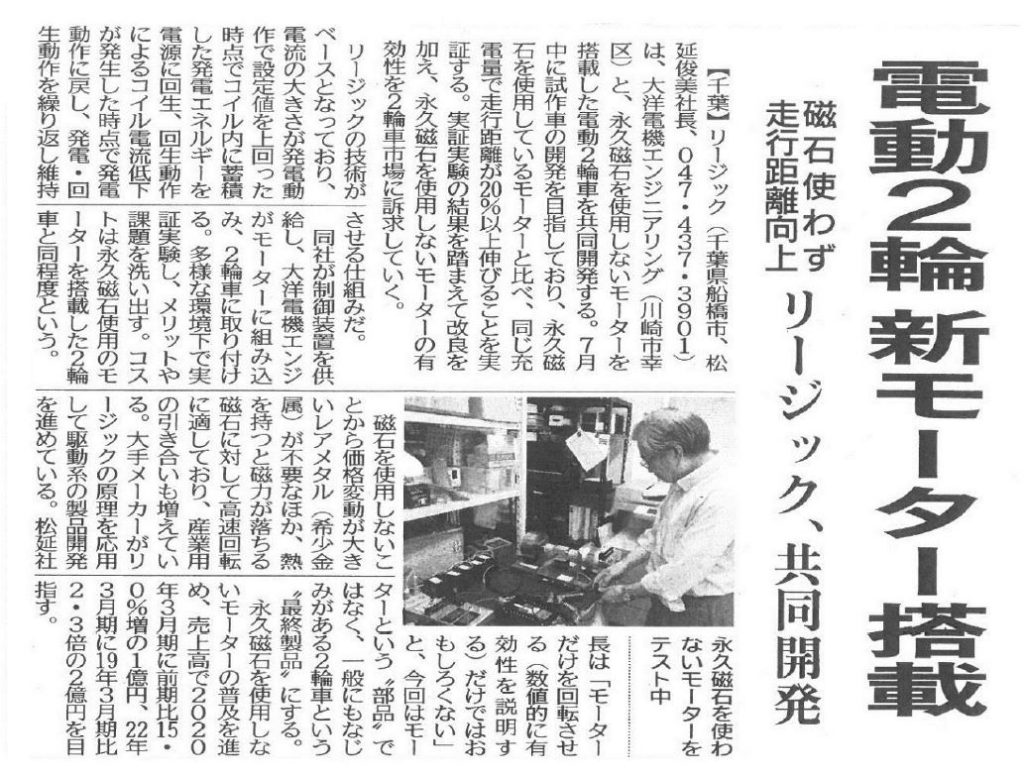Electric two-wheeler with new motor Improving mileage without magnets
[Chiba] Leagic Co., Ltd (Funabashi City, Chiba Prefecture, President Toshimi Matsunobe, 047-437-3901) jointly develops with Taiyo Denki Engineering Co., Ltd. (Kawasaki City, Yuki Ward) an electric two-wheeled vehicle equipped with a motor that does not use permanent magnets. The company aims to develop a prototype vehicle by July, and demonstrates that it can travel 20% or more at the same charge amount compared to a motor that uses permanent magnets. Based on the results of the demonstration experiments, we will make improvements and appeal the effectiveness of the motor that do not use permanent magnets to the two-wheeled vehicle market.
This motor is based on the technology of Leagic. When the magnitude of the current exceeds the setting value in the power generation operation, the power generation energy stored in the coil is regenerated to the power supply. After that, when the current of the coil decreases due to regenerative operation, the motor returns from regeneration operation to power generation operation. This motor has the mechanism that alternately repeats the regenerative operation and the power generation operation.
Leagic supplies the control device, and Taiyo Denki Engineering incorporates it in the motor and attaches it to the two-wheeled vehicle. These companies are planning to do demonstration experiments under various environments and identify merits and issues. Its cost is about the same as a two-wheeled vehicle equipped with a motor using a permanent magnet.
This motor does not use magnets, so there is no need to use rare metals with large price fluctuations. In addition, this motor is suitable for high-speed rotation because it does not use a magnet that loses its magnetic force when it has heat. And, this motor is increasing for industrial use. Leading manufacturers are developing driveline products by applying the principle of Leagic. President Matsunobu said that “It is not interesting just to rotate the motor (only numerically explaining the effectiveness)”. These companies not only produce “parts” of motors, but also “end products” of commonly known two-wheeled vehicles.
These companies promote sales of motors that do not use permanent magnets, and aims for 100 million, 15.0% over the same period last year in the fiscal year ending March 2020, and aims for 200 million yen in the fiscal year ending March 2022, 2.3 times higher than the fiscal year ending March 2019.
